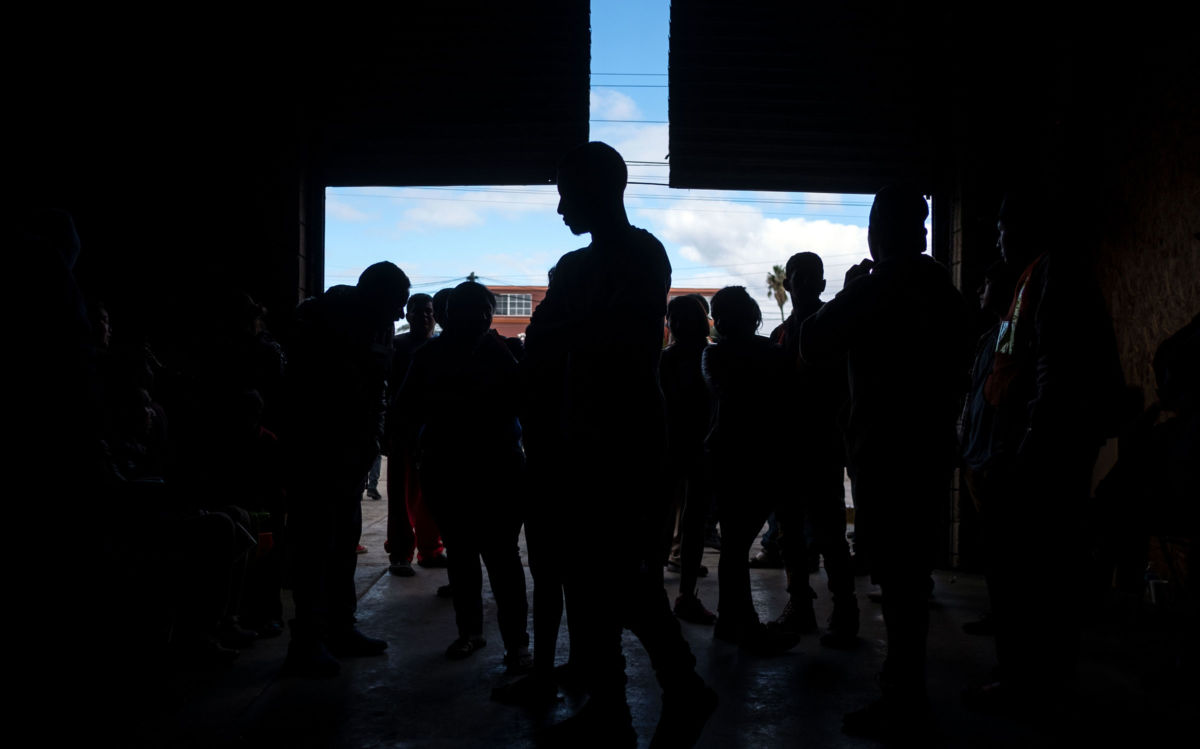The United States was a near global outlier Monday at the United Nations General Assembly in rejecting a framework to bolster international cooperation on refugees.
Only Hungary — headed by far-right Prime Minister Viktor Orban, whose administration has been accused of carrying out “a full-frontal assault on migrants and refugees” — joined the US in voting “no” on the Global Compact on Refugees (pdf). One hundred eighty-one nations voted to approve it, while three — the Dominican Republic, Eritrea, and Libya — abstained.
“The US said recently that it backed most of the refugee pact, but not the part aimed at limiting detentions of asylum seekers,” Agence France-Presse reported. The international agreement states: “The development of non-custodial and community-based alternatives to detention, particularly for children, will also be supported.”
As the Washington, DC-based advocacy organization Refugees International explains of the non-binding agreement:
The Compact was developed over the course of two years of consultations among governments, UN agencies, civil society organizations, the private sector, and refugees themselves. At present, around 85 percent of the world’s refugees are hosted by low- and middle-income countries, contributions from wealthy donor governments fall well-short of overall need, and opportunities for refugees to resettle to third countries have actually decreased. The overall goal of the Compact was to establish a more equitable, predictable, and inclusive refugee response framework based on international cooperation.
According to UN High Commissioner for Refugees Filippo Grandi, the compact “provides long overdue recognition that countries hosting large numbers of refugees provide a huge service to our shared humanity and sets out ways through which the rest of the world can help share the load.”
As such, the adoption of the document was welcomed by a number of human rights organizations — including International Rescue Committee (IRC), Oxfam, and Norwegian Refugee Council (NRC) — who said it has the potential for greatly improving the current refugee system. Key to achieving that is ensuring equity in shouldering the responsibility for hosting refugees, accountability for meeting the goals of the Compact, elevating the voices of refugees themselves in improving the system, and improving the daily lives of refugees.
🇸🇾 Syria
🇦🇫 Afghanistan
🇸🇸 South Sudan
🇲🇲 Myanmar
🇸🇴 Somalia2/3 of all refugees come from just 5 countries. Imagine what peace in just one of those countries could mean. #RefugeeCompact #AChildIsAChild @Refugees pic.twitter.com/kdHz4K61b2
— UNICEF (@UNICEF) December 17, 2018
“The responsibility for hosting refugees is now primarily shouldered by a few low- and middle-income countries close to war zones,” noted NRC secretary general Jan Egeland. “The most affluent nations are neither receiving refugees nor supporting host nations in any significant way.”
In fact, writes David Miliband, president of the IRC and former UK foreign secretary, “Countries like the United States are getting something close to a free ride.” As Miliband explained further in an op-ed published Monday at the Washington Post:
The Trump administration reduced the number of refugees admitted to the United States under its resettlement program from the historic average of 90,000 a year to only 22,000 in the last fiscal year. The cap for the current fiscal year is only 30,000 refugees.
Secretary of State Mike Pompeo has repeatedly said we need to “take care of them over there.” But international aid is not keeping pace with the needs of refugee-hosting states. The UN’s study of the financing of crisis-affected states showed a 40 percent shortfall, so the gap between needs and provision is growing every day. That is why the UN’s global compact will only be a game-changer if it galvanizes action in the places and for the people who need help. With governments like the United States in retreat, the private sector and NGOs need to step forward.
Reacting to the “disappointing” vote by the Trump administration at the General Assembly, Refugees International said, “While the vote does not represent a formal withdrawal from the Compact, it does send a signal that the wealthiest country the world intends to abdicate global leadership in working towards the Compact’s objectives.”
Press freedom is under attack
As Trump cracks down on political speech, independent media is increasingly necessary.
Truthout produces reporting you won’t see in the mainstream: journalism from the frontlines of global conflict, interviews with grassroots movement leaders, high-quality legal analysis and more.
Our work is possible thanks to reader support. Help Truthout catalyze change and social justice — make a tax-deductible monthly or one-time donation today.
